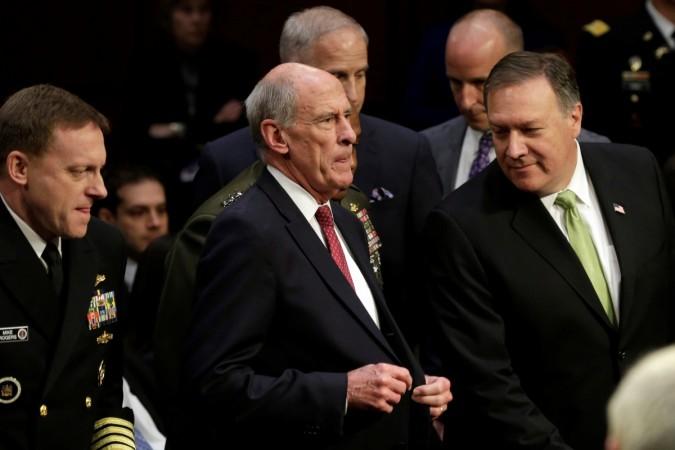
In a damning indictment of the current situation in Pakistan — where leaders of proscribed terrorist groups held public meetings and roamed around until recently — the United States has squarely blamed "Islamabad's failure to curb support to anti-India militants" for worsening India-Pakistan relations.
The statement came even as Pakistan once again violated ceasefire in the Arnia sector of the Jammu district of Jammu and Kashmir along the Line of Control (LoC) it shares with India at around 7 am on Friday, May 12. A woman was killed and her husband injured in a similar ceasefire violation a day earlier in the Rajouri district of the state.
'Situation may worsen'
US Senator Daniel Coats, who is also the director of National Intelligence, said during a Congressional hearing: "Relations between India and Pakistan remain tense following two major terrorist attacks in 2016 by militants crossing into India from Pakistan." He was referring to the attacks on the Uri and Pathankot military bases.
Coats added that the ties "might deteriorate further in 2017, especially in the event of another high-profile terrorist attack in India that New Delhi attributes to originating in or receiving assistance from Pakistan."
![An Indian army soldier patrols along a highway on the outskirts of Srinagar, September 29, 2016 [Representational Image]. Indian Army personnel](https://data1.ibtimes.co.in/en/full/625928/indian-army-personnel.jpg?h=450&l=50&t=40)
Ceasefire violations and no progress in probes
He then laid the entire blame on Pakistan for the worsening of ties, saying: "Islamabad's failure to curb support to anti-India militants and New Delhi's growing intolerance of this policy, coupled with a perceived lack of progress in Pakistan's investigations into the January 2016 Pathankot cross-border attack, set the stage for a deterioration of bilateral relations in 2016."
Coats went on to add: "Increasing numbers of firefights along the Line of Control, including the use of artillery and mortars, might exacerbate the risk of unintended escalation between these nuclear-armed neighbours."
Onus now on Pakistan
Coats then said in his statement: "Easing of heightened Indo-Pakistani tension, including negotiations to renew official dialogue, will probably hinge in 2017 on a sharp and sustained reduction of cross-border attacks by terrorist groups based in Pakistan and progress in the Pathankot investigation."
All of these are things India has been insisting on for quite some time now. Prime Minister Narendra Modi had taken this up even in the United Nations, calling Pakistan the "mother-ship of terrorism." The latest statement from the Donald Trump administration in the US only goes on to strengthen that assertion.









![Priyanka Chopra congratulates Mannara for winning GQ award; latter says 'Didi we will celebrate' [reactions]](https://data1.ibtimes.co.in/en/full/797303/priyanka-chopra-congratulates-mannara-winning-gq-award-latter-says-didi-we-will-celebrate.jpg?w=220&h=138)







